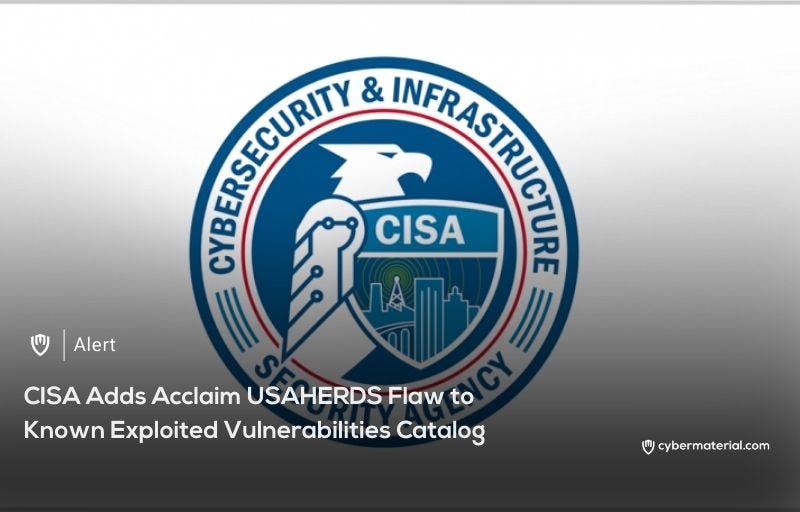
The U.S. Cybersecurity and Infrastructure Security Agency (CISA) has recently added a high-severity vulnerability in Acclaim Systems’ USAHERDS software to its Known Exploited Vulnerabilities (KEV) ca…

The U.S. Cybersecurity and Infrastructure Security Agency (CISA) has recently added a high-severity vulnerability in Acclaim Systems’ USAHERDS software to its Known Exploited Vulnerabilities (KEV) ca…